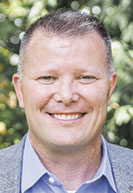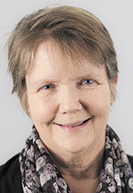Subscriber Benefit
As a subscriber you can listen to articles at work, in the car, or while you work out. Subscribe NowNoah Herron wanted to be his own boss, so about 16 years ago he left his job at Eli Lilly and Co. and started selling seeds on the internet.
He spent time during the Great Recession turning old magazine pages into seed packets in his bedroom in Broad Ripple. That online venture became Urban Farmer Seeds, which Herron grew into a storefront business in Westfield that sells 100,000 orders of garden products per year.
During the 2010s, he became interested in brewing beer and making wine and learned the crafts by watching YouTube videos and reading books. That hobby turned into Urban Vines Winery & Brewery, a popular gathering spot in Westfield since 2017.
Now, Herron, 40, is planning his biggest project yet in Westfield, where he lives with his wife and two children and serves on the City Council.
With co-founders Mike Hayner, a longtime friend, and Marc Rupenthal, the winemaker at Urban Vines, Herron plans to open Urban Apples Cidery on May 31 at 18326 Spring Mill Road. It will be Hamilton County’s first cidery and the 15th cidery in Indiana, according to ciderguide.com.

“There’s breweries, there’s wineries, there’s distilleries, and very seldom do you hear about cideries,” Herron said. “Finding an opportunity that nobody’s doing around you, I think, is really important.”
Herron purchased the 25-acre property in 2020. It was previously home to Bridle Oaks Farm, an equestrian facility with a 20,000-square-foot stable, a barn that dates to the mid-19th century, two ponds and plenty of open land.
Herron said the property had been for sale about two years before he purchased it. In recent years, housing developments have been constructed around the Urban Apples site, influenced by the area’s proximity to Grand Park Sports Campus.
“If we didn’t do this, a developer would have bought it and turned it into houses,” Herron said. “For us, the value was there because we were able to keep a 20,000-square-foot building and then build out from there.”
Herron operates his businesses in Westfield because it is where he is most comfortable. He said the city’s rapid growth has helped his businesses become successful. Since 2008, Westfield has grown from about 21,000 residents to more than 54,000.
After he opens Urban Apples, Herron plans to purchase a property in downtown Westfield to open a bar and grill, and he wants to turn another property he owns into a butcher shop.
“There’s so much more residential and so many more things for people looking to do, and it’s an easy place for me to kind of grow my businesses,” he said.
Mayor Scott Willis said Westfield needs residents like Herron, who want to take risks and start businesses in the city.
“You want to encourage the kinds of behavior and risks that Noah has taken in his own community,” Willis said. “He’s not taking his businesses to Carmel or Indianapolis or Kokomo. He’s investing in Westfield, and we need more guys and gals in Westfield like that.”
Getting ready
Workers are renovating the stable into a facility that will hold two bars; a German-themed restaurant; space for weddings, concerts and corporate events; and a 10,000-square-foot cider and wine production room. A handful of old horse stalls will be preserved as spaces for small gatherings and birthday parties.
“We’ll have a lot of the unique features from the original property that we’re trying to keep here,” Hayner said.
 Along with cider-making, wine production will move to Urban Apples. Herron will focus on brewing beer at the 4,000-square-foot Urban Vines.
Along with cider-making, wine production will move to Urban Apples. Herron will focus on brewing beer at the 4,000-square-foot Urban Vines.
Urban Apples will have a much larger production capacity than Urban Vines, where Herron started with a 2,000-gallon tank before he upgraded to a 7,000-gallon tank. The tank at Urban Apples will have a capacity of 24,000 gallons.
“It’s going to be a lot nicer because currently we have to make some of the same batches several times a year,” he said. “So if we’re making pinot grigio, instead of making it two or three times a year, we can just make one large batch of it, and that’ll last us for the whole year.”
Rupenthal will lead cider and wine production at Urban Apples. He said he is excited to use the cidery’s hardware.
“We have so many more tools to use now and you can get even better products,” Rupenthal said. “The larger scale you are, the better you can make something. The equipment at your disposal is so much better than on a small scale. So, we have the opportunity to make a really high-quality product and a lot of it really quickly, which is a lot of fun.”
Outside, Urban Apples will feature an orchard with 1,000 apple trees, a 35-foot hill called “Kid Mountain” where children can play while their parents enjoy a drink at picnic tables, an outdoor concert area, a paved 200-car parking lot and space for overflow parking.
Herron, who grew up in Fort Wayne and studied biochemistry at Indiana University, has spent $6 million developing Urban Apples. The money went toward purchasing the land, renovating the stable, adding infrastructure, and bringing city water and sewer services to the property.
High interest rates, increasing materials costs and early struggles with the city over zoning changes created challenges along the way. While Urban Vines took 18 months to open, Herron has spent four years on Urban Apples.
“For four years, it was just like, ‘Is it ever going to happen?’ I don’t know if I’ll ever take on a project this big ever again,” Herron said. “It’s been really cool. It’s been a long process. It’s added some gray hairs, but I’m just excited to get open and moving along.”
Attracting visitors
Urban Apples will be Hamilton County’s latest agritourism destination, a category that includes breweries, wineries, farm tours, u-picks, farm markets, Christmas tree farms and flower farms. Longtime businesses in the county include Stuckey Farm Orchard & Cider Mill in Sheridan, Wilson Farm Market in Arcadia and Spencer Farm in Noblesville.
Last month, Bier Brewery opened in Noblesville with a 6,000-square-foot taproom, dog park, kids’ playground, covered outdoor seating, a private room and a large outdoor green space with bike access to Allisonville Road.
And West Fork Whiskey Co. is planning a 12- to 18-acre housing and entertainment district surrounding its distillery just north of Grand Park. West Fork’s plan calls for 150 town houses, a whiskey-aging warehouse, a pond, an outdoor concert venue, dog park and various other neighborhood amenities, as well as future commercial development.
“It’s a lot more fun for people to come to an agritourism place instead of just a straight restaurant,” Herron said. “People can kind of do tours and see how things are made.”
Willis said Westfield’s history as a farming community makes it a prime location for agritourism. He added that the city also wants to attract agricultural technology businesses.
“Agritourism is in my mind a natural fit in Westfield because of our agricultural roots and how the town was founded,” he said. “We understand our roots, and we think we can drive a component of our economy around those roots, which is agriculture.”
Hamilton County Tourism CEO Brenda Myers said data shows most people who visit agritourism businesses live within 50 miles of the venue.
“If you’re a business owner who has a winery or brewery, you really want that local audience because you get that repeat visit locally,” Myers said.
Herron said he expects a local crowd at Urban Apples, but predicted a boost in out-of-towners during the spring and summer sports seasons at Grand Park, which attracted 1.1 million visitors last year.
“It’s important to try to keep those visitors here,” he said. “And this is just one more thing that I think will help keep the people that are visiting Grant Park in Westfield.”•
Please enable JavaScript to view this content.


